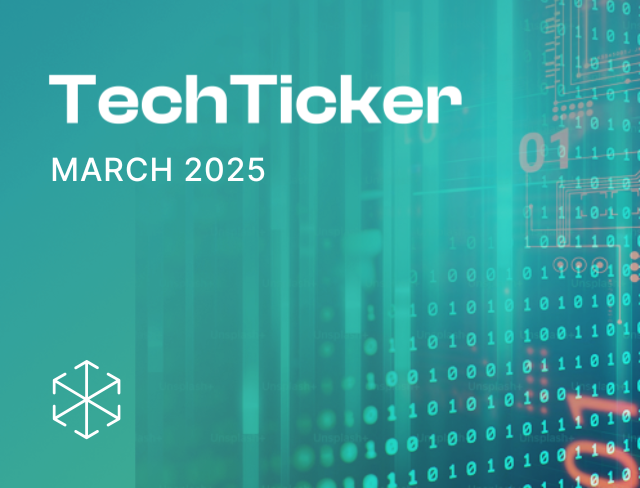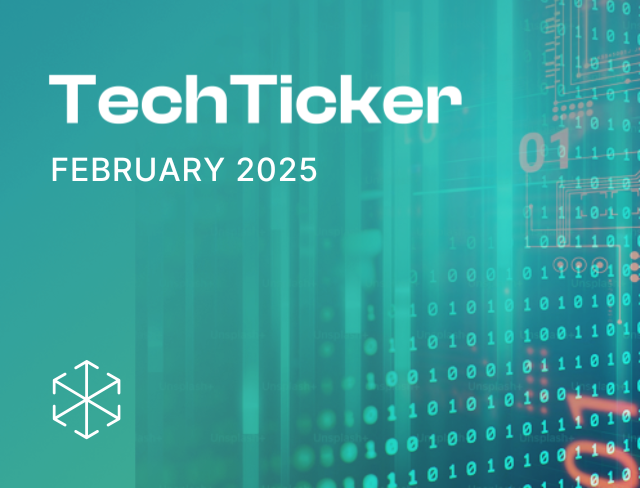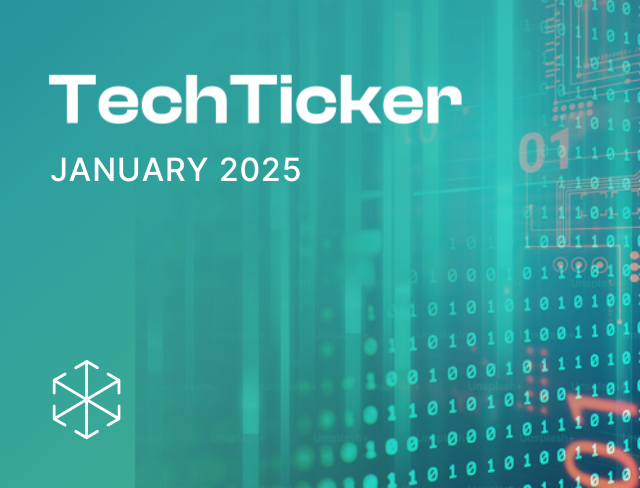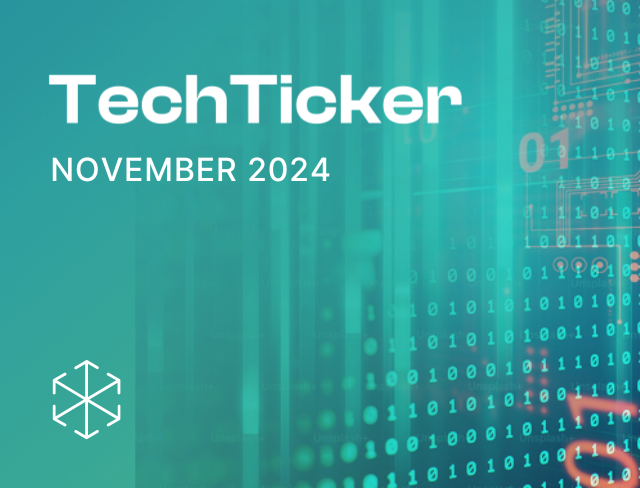It’s been a busy couple of months with the Digital Personal Data Protection Act coming out. The Act, though, has only set the ball rolling for the major digital regulatory landscape update that we are likely to see in the next few months. As the government continues to bring out more laws that govern technology in India, we bring to you this edition of the tech-ticker help catch-up. This edition covers what we can expect from the Digital India Act, what the recent competition law amendments mean for India’s digital ecosystem, TRAI’s latest consultation paper and much more.
Image credits: Getyarn.io
The many things Digital India Act while regulate
As we continue to hear more things about what the Digital India Act (DIA) may or may not cover, it looks like a draft might finally be ready. Reporting on the DIA suggests that it is likely to introduce heavy penalties.. Besides strict compliances which are likely to be overseen by the Digital India Authority, it also seeks to improve cybersecurity, classify various types of intermediaries and define digital offenses, user harms and cybercrimes. The DIA might also add fuel to the re-ignited fire of the net neutrality debate by reinforcing the ‘Prohibition of Discriminatory Tariffs for Data Services Regulations’ laid down by the Telecom Regulatory Authority of India (TRAI) in 2016; which prevents telecom service providers from charging varying tariffs for data services based on content being accessed by a consumer. The DIA will also work towards ensuring algorithmic accountability and allow for an ‘opt-out’ mechanism against automated decision-making. This is likely to follow international trends and introduce a ‘human-in-the-loop’ to ensure oversight in decision-making technologies.
Digital competition law not in sight yet but Competition Commission gears up
The Committee on Digital Competition Law has received yet another extension for submitting its report on the need for ex-ante regulations in India. While it’s anyone’s guess about what the Committee will ultimately recommend, in the meanwhile the Competition Commission of India (CCI) has stepped in to publish draft regulations on settlements and commitments framework; and combinations. The draft regulations have been welcomed by the industry because they offer clarity and predictability for implementing the Competition Amendment Act 2023. Persisting issues will hopefully be addressed soon.
The 2023 amendment and the draft regulations are the culmination of the competition law and policy reform that started in 2018 and arose due to concerns about increasing size of digital companies. The conversations led to the Competition Law Review Committee being set up, which suggested that the existing competition law framework is sufficient to address concerns in the digital world, with just a few upgrades. A draft Competition Amendment Bill was put out for public comments, following which it was tabled in the Parliament in 2022 and the Standing Committee on Finance also examined this Bill.
And these upgrades took shape in the 2023 Amendment. The upgrades focus on accelerating timelines for enforcing competition law and to also strengthen the CCI’s powers to scrutinize deals in the digital space. This move is pretty much in line with what other global regulators are doing to reform their competition law and policy frameworks to reckon with problems they see in digital competition.
Some gaps, however, exist with respect to how the draft regulations should be interpreted, particularly where in some provisions, the regulations potentially transcend the power in the main act. For instance, while the act suggests that signing up for the settlement process would mean that a company has accepted that they have violated the Competition Act, the regulations say that accepting a settlement agreement will not be considered as a finding of any violation. Interestingly, the Standing Committee, in its examination in 2022, noted that the settlement and commitment process should not mandate the admission of guilt. So, until the CCI bridges these gaps, there remains some uncertainty.
Mini-splainers
Looking to close the digital divide: TRAI recently released a consultation paper that looks into digital inclusion. The paper echoes concerns about India’s digital transformation and the recent boom in emerging technology potentially leaving behind those who do not have access to meaningful connectivity. It discusses how the increased use of technology could widen the already large gap between those with access and those without. Interestingly, it emphasizes the need for meaningful connectivity - which looks into not just access to digital technologies but how access needs to translate to a safe, satisfying, enriching and productive experience. The paper is open for comments till October 16th, 2023.
Tech-diplomacy, check and check - The Indian government entered into agreements with Armenia, Sierra Leone and Mauritius to offer them the India Stack and digital public infrastructure (DPI) with open-source access and without costs. India's DPI model has been a major talking point of the G20 meetings and has seen a big uptake in recent times. DPI's potential to widen the net of financial inclusion and its use in preventing leakages in public service delivery have already been identified as reasons behind the Indian economy's boost and progress towards equitable growth. Leveraging this, the government has not only committed to helping other countries establish their public stacks, it has volunteered to manage the global DPI repository through an open source platform.
Shaking things up with the National E-commerce Policy: The long awaited National Ecommerce Policy is in its final stages of making. The Department for Promotion of Industry and Internal Trade said that they’ll not be holding any further consultations on the policy and have finalized the policy. This policy addresses six broad areas of the e-commerce ecosystem including data, infrastructure development, e-commerce marketplaces, regulatory issues, stimulating domestic digital economy and export promotion through e-commerce. As with most recent laws and policy changes, this policy is also touted to have taken into consideration the interests of all stakeholders including traders, retailers, startups, and consumers.
Fact check units are here to stay: The state government of Karnataka is establishing a fact-checking unit to curb fake news on social media. The unit is likely to work towards detecting syndicates that spread fake news and preventing dissemination, while punishing those who propagate fake news. The government said that the unit will have a supervisory committee, fact-finding teams and analysis teams apart from other wings, which it may constitute. The Editors Guild of India was quick to react to the news and expressed concerns over some aspects of the Karnataka government’s decision. In a letter, the Guild urged the government to “clearly specify the scope of and powers of the proposed fact-checking unit, as well as the governing mechanism under which it will operate”. A demand that has already gained traction against the Information Technology (Intermediary Guidelines and Digital Media Ethics Code) Amendment Rules, 2023, which empowers the Central Government to establish a fact-check unit for government-related news. The Editors Guild is also involved in challenging this amendment in the Bombay High Court.
Data Protection Act’s new horizons: Minister of State for IT, Rajeev Chandrasekhar revealed that representatives from the industry have sought six months as the minimum transition period to comply with the Digital Personal Data Protection Act, 2023 (DPDPA). More importantly, he clarified that the Government will not be giving more than 2 years to comply with the Act. The exact timeframe? That is up for discussion. Companies now need to gear up and start making a list of all their data collection practices that they need to review like their data handling and retention policies, data security practices and make an inventory of the personal data they process. As soon as the Act was out, we ran a webinar series that speaks about all things data, do check it out here, along with this primer and some key takeaways about the Act. To find out about some interesting questions about the Act we delved into, do see our LinkedIn page.










